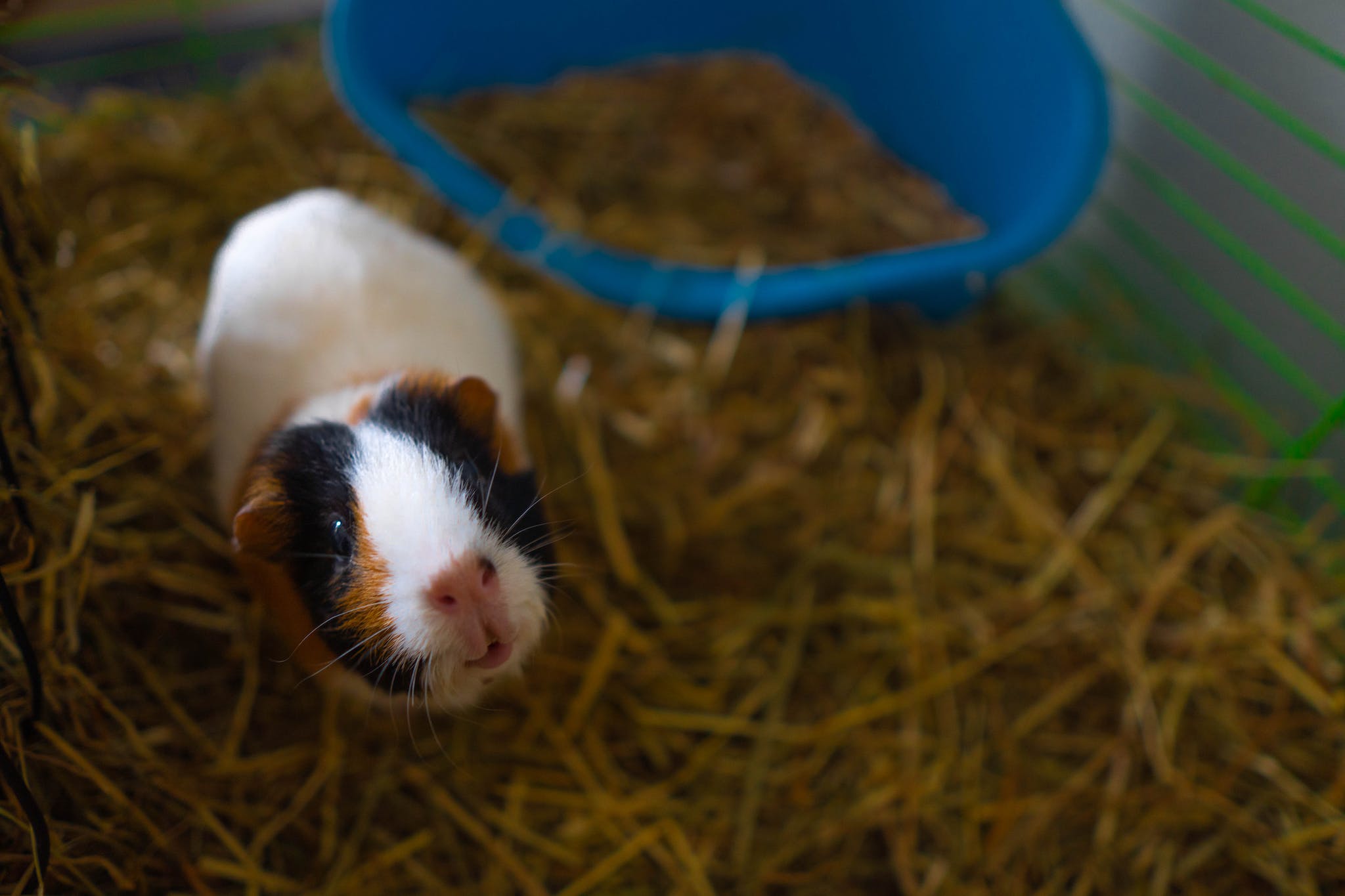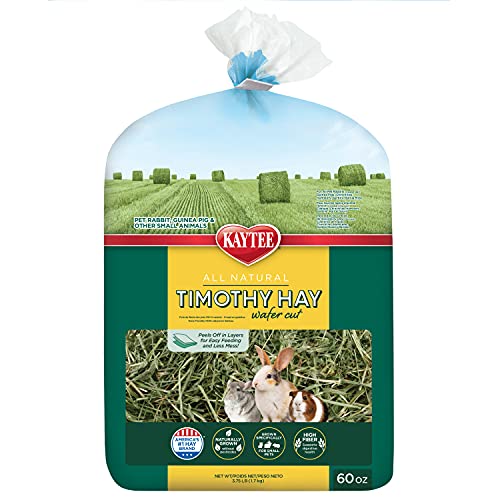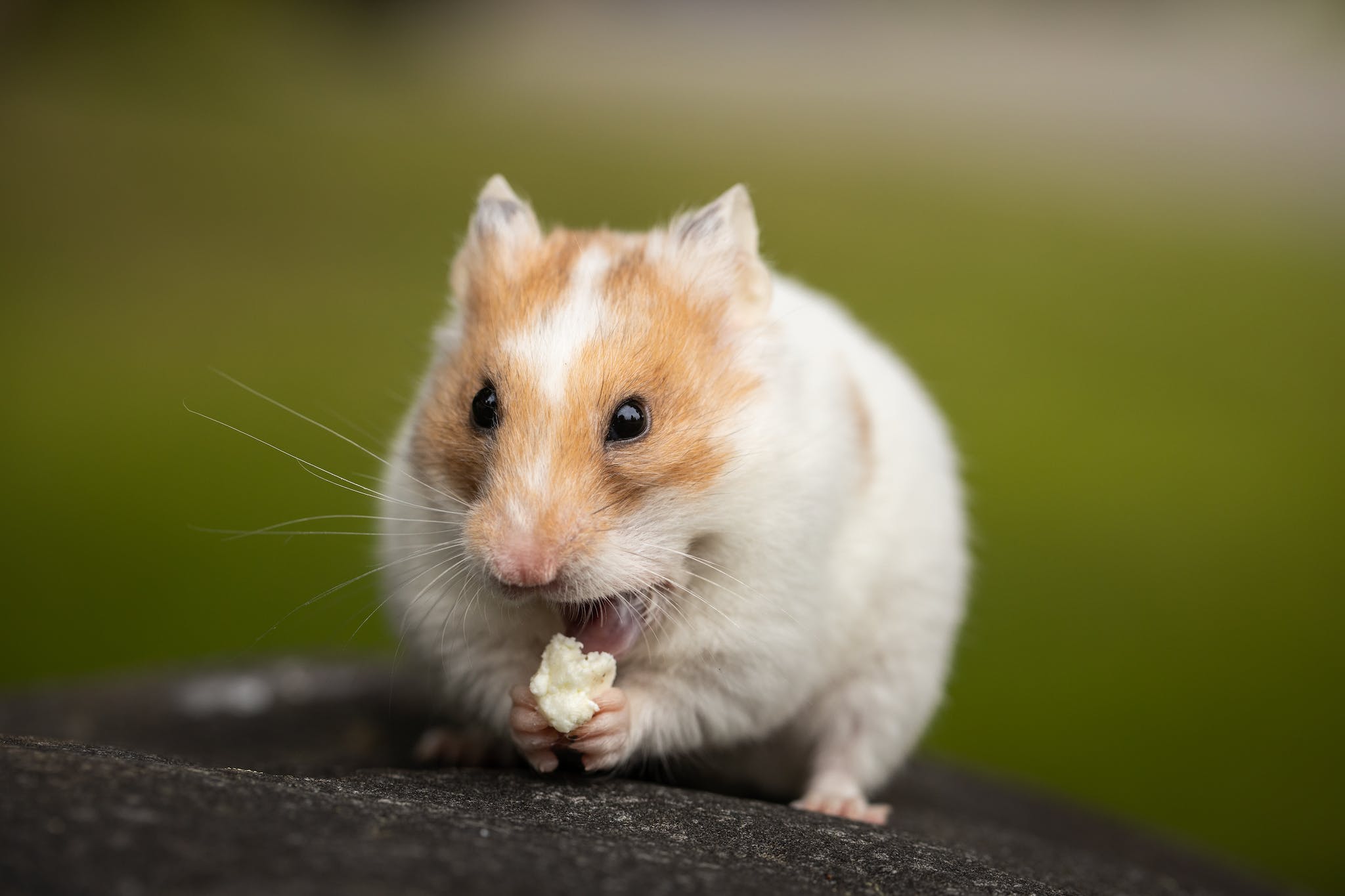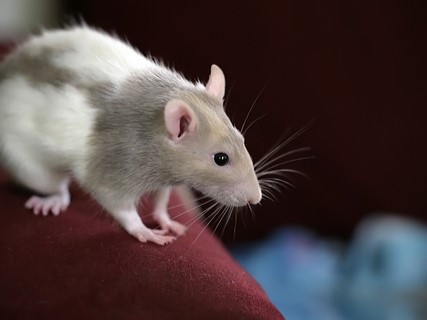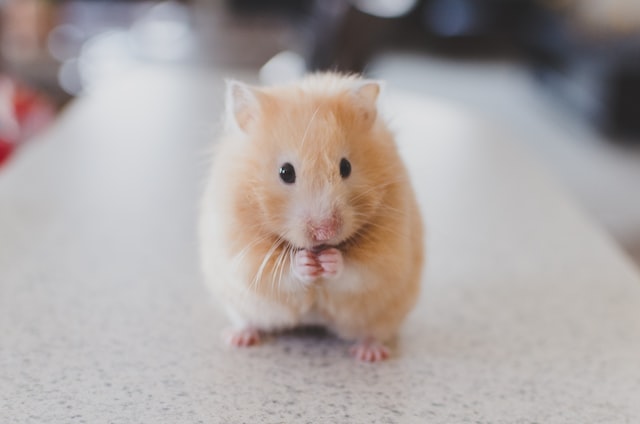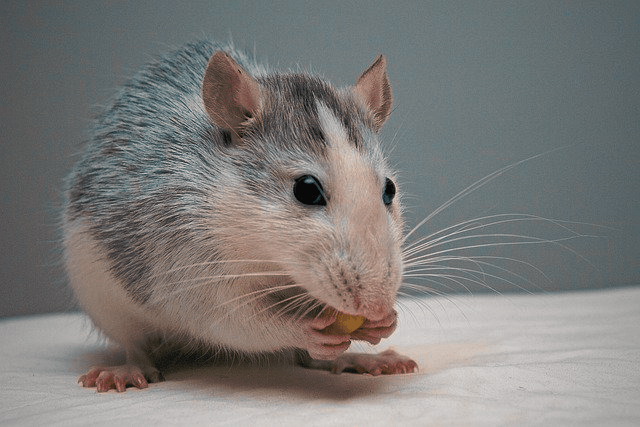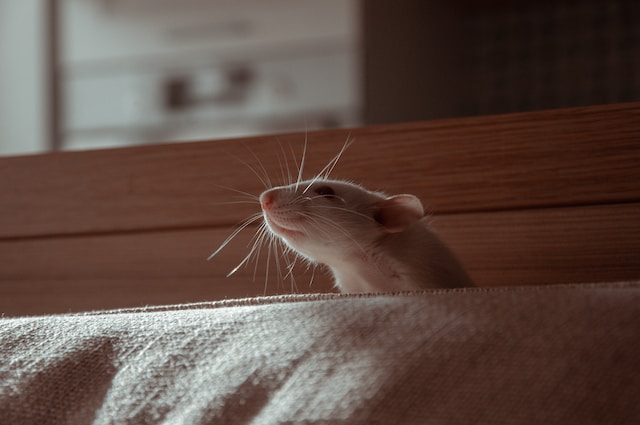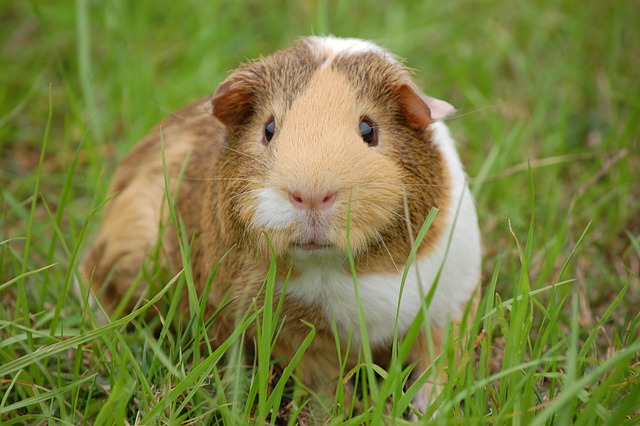Best Hay for Guinea Pigs: A Comprehensive Guide
There are some affiliate links below, but they are all products I highly recommend. For more info, view my disclosure here.
When it comes to caring for your guinea pig, providing them with the right type of hay is crucial. Not all hay is created equal, and choosing the best hay can help ensure their overall health and well-being. Below, we’ll explore the different types of hay available and help you determine which one is best for your guinea pig.
Timothy hay is one of the most popular types of hay for guinea pigs. It is high in fiber, low in protein, and low in calcium, making it an ideal choice for their digestive system. Timothy hay also has a long strand length, which helps promote dental health by encouraging your guinea pig to chew and grind their teeth.
Another option to consider is orchard grass hay. This type of hay is similar to timothy hay in terms of nutrition, but it has a softer texture that some guinea pigs may prefer. Orchard grass hay is also a good choice for guinea pigs that have dental problems or are picky eaters, as it is easier to chew and digest.
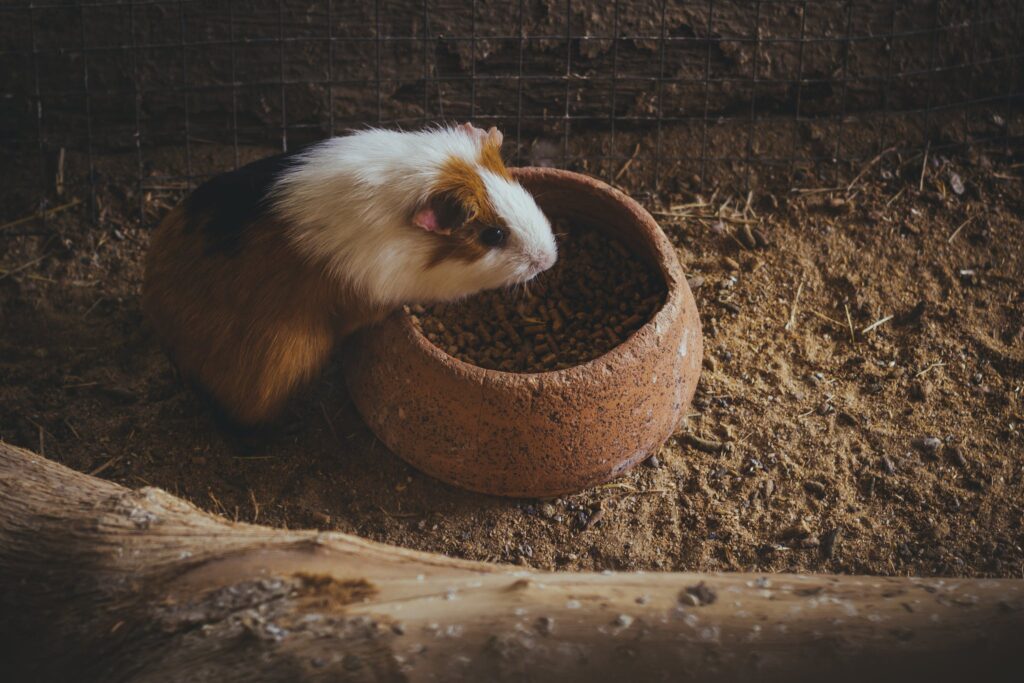
Understanding Guinea Pig Dietary Needs
Guinea pigs are herbivores, which means they require a diet that is high in fiber and low in fat. It’s important to understand the nutritional needs of your guinea pig to ensure they stay healthy and happy.
Essential Nutrients and Fiber
Guinea pigs require a diet that is rich in essential nutrients such as vitamin C, which they cannot produce on their own. Vitamin C is important for maintaining a healthy immune system, and a deficiency can lead to scurvy. Other essential nutrients include protein, calcium, and phosphorus.
Fiber is also an important part of a guinea pig’s diet. It helps to keep their digestive system healthy and prevents constipation. Good sources of fiber include hay, vegetables, and fruits.
The Role of Hay in a Guinea Pig’s Diet
Hay should make up the majority of a guinea pig’s daily diet. It provides the necessary fiber to keep their digestive system healthy and also helps to wear down their teeth, which continually grow throughout their life.
When choosing hay for your guinea pig, look for a high-quality hay that is fresh and free from dust and mold. Timothy hay is a good choice, as it is high in fiber and low in calcium. Alfalfa hay can also be fed to young guinea pigs or pregnant or nursing guinea pigs, as it is high in calcium and protein.
A balanced and healthy diet is essential for the well-being of your guinea pig. Make sure they have access to fresh hay at all times and provide a variety of vegetables and fruits to ensure they get all the essential nutrients they need.
Types of Hay for Guinea Pigs
If you are a guinea pig owner, you know that hay plays an important role in your pet’s diet. It helps keep their digestive system healthy and provides essential nutrients. But with so many types of hay available, it can be overwhelming to choose the best one. In this section, we will discuss the most popular types of hay for guinea pigs.
Timothy Hay
Timothy hay is the most common type of hay for guinea pigs. It is low in calcium and high in fiber, making it ideal for your pet’s digestive health. Timothy hay is also affordable and readily available in most pet stores. It is important to choose fresh and fragrant Timothy hay to ensure that it is of good quality.
Alfalfa Hay
Alfalfa hay is high in calcium and protein, making it a good choice for pregnant or nursing guinea pigs. However, it is not suitable for adult guinea pigs as it can lead to urinary problems due to its high calcium content. If you choose to feed your guinea pig alfalfa hay, make sure to do so in moderation.
Orchard Grass Hay
Orchard grass hay is a good alternative to Timothy hay for guinea pigs. It is high in fiber and low in calcium, making it a healthy choice for your pet’s digestive system. Orchard grass hay is also softer than Timothy hay, making it easier for guinea pigs to eat.
Meadow and Oat Hay
Meadow and oat hay are also suitable for guinea pigs. They are high in fiber and low in calcium, making them good options for your pet’s digestive health. However, they are not as readily available as Timothy or orchard grass hay.
When choosing hay for your guinea pig, it is important to consider their age and health needs. Adult guinea pigs should be fed Timothy or orchard grass hay, while pregnant or nursing guinea pigs can be fed alfalfa hay in moderation. Make sure to choose fresh and fragrant hay, and store it in a cool, dry place to maintain its quality.
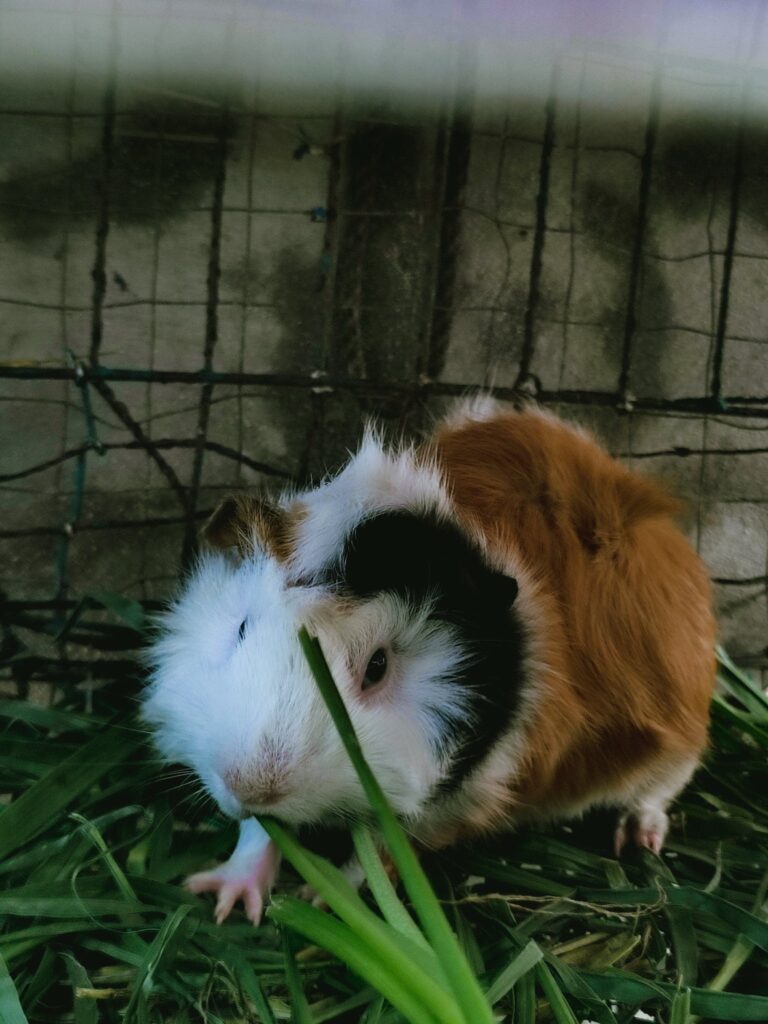
Selecting the Best Hay for Your Guinea Pig
When it comes to selecting the best hay for your guinea pig, there are a few things you should consider. Here are some tips to help you make the right choice.
Age-Appropriate Hay Selection
Different ages of guinea pigs require different types of hay. For young guinea pigs, alfalfa hay is the best choice as it is high in calcium and protein. However, adult guinea pigs need hay that is lower in calcium and protein, such as Timothy hay. Baby guinea pigs can also benefit from a mix of alfalfa and Timothy hay. Make sure to choose the hay that is appropriate for your guinea pig’s age.
Assessing Hay Quality
When selecting hay for your guinea pig, it is important to choose high-quality hay. Good quality hay should be fresh, green, and free of dust, mold, and other contaminants. You can assess the quality of hay by looking at its color, texture, and smell. High quality hay should be green in color, have a soft texture, and a fresh smell.
Hay Varieties and Blends
There are different varieties of hay available for guinea pigs, such as Timothy hay, orchard grass hay, and meadow hay. You can also find hay blends that combine different types of hay to create the perfect blend for your guinea pig. When choosing a hay variety or blend, make sure to select one that is high quality and appropriate for your guinea pig’s age.
Selecting the best hay for your guinea pig involves choosing age-appropriate hay, assessing hay quality, and selecting the right hay variety or blend. By following these tips, you can ensure that your guinea pig gets the best value and nutrition from their hay.
Health Considerations and Hay
When it comes to guinea pigs, hay is an essential part of their diet. Not only does it provide them with the necessary fiber, but it also helps keep their teeth healthy and their digestive system functioning properly. However, there are some health considerations to keep in mind when choosing the best hay for your guinea pig.
Preventing Digestive and Dental Issues
Guinea pigs have a unique digestive system that requires a constant supply of fiber. Without enough fiber, they can develop serious health problems such as gastrointestinal stasis. This condition occurs when food moves too slowly through the digestive system, leading to a buildup of gas and potentially deadly blockages.
Hay is an excellent source of fiber and should make up the majority of your guinea pig’s diet. However, not all hay is created equal. Timothy hay is the most commonly recommended type of hay for guinea pigs because it has the right balance of fiber and nutrients. Other types of hay, such as alfalfa, have a higher calcium content and should only be fed in limited quantities.
In addition to providing fiber, hay also helps keep your guinea pig’s teeth healthy. Guinea pigs’ teeth are constantly growing, and they need to chew on tough fibers to keep them from becoming overgrown. Without enough hay, your guinea pig’s teeth may become too long, leading to dental problems and potential health issues.
Avoiding Excess Calcium and Sugars
While hay is an essential part of a guinea pig’s diet, it’s important to choose the right type of hay to avoid excess calcium and sugars. High sugar content can lead to obesity and other health issues, while too much calcium can lead to bladder stones.
Timothy hay is an excellent choice for guinea pigs because it has a low sugar content and a balanced calcium-to-phosphorus ratio. Other types of hay, such as alfalfa, have much higher sugar content and calcium levels and should only be fed in limited quantities.
Choosing the right hay for your guinea pig is essential for their health and well-being. Timothy hay is the most commonly recommended type of hay because of its balanced fiber and nutrient content. Be sure to avoid hay with high sugar content and excess calcium to prevent health issues such as obesity and bladder stones. By providing your guinea pig with the right hay, you can help ensure their digestive and dental health, and overall well-being.
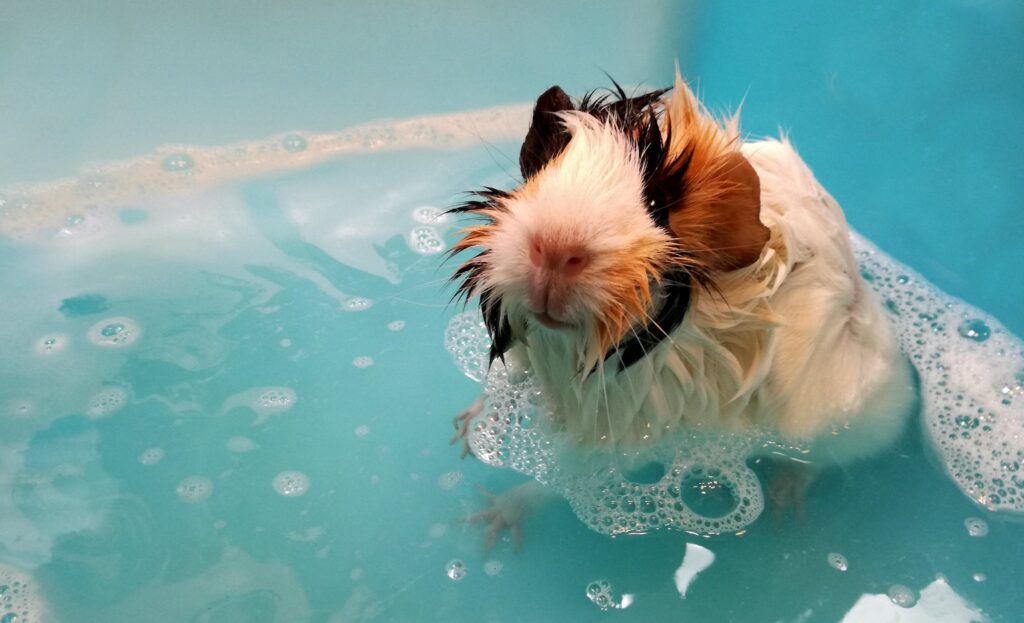
Feeding Practices and Storage
Proper Hay Feeding Techniques
When it comes to feeding hay to your guinea pig, it is important to provide unlimited access to hay on a daily basis. You can use hay racks or hay feeders to keep the hay off the ground and to prevent contamination. Make sure to provide enough hay for your guinea pig to eat throughout the day.
It is recommended to provide an unlimited amount of hay to your guinea pig. This ensures that they have access to enough fiber and nutrients to maintain a healthy digestive system.
Storing Hay to Maintain Freshness
To ensure that your guinea pig always has the freshest hay available, it is important to store it properly. Hay should be stored in small batches in a cool, dry place. A cardboard box or paper bag can be used to store the hay.
Make sure to keep the hay away from sunlight and moisture, as this can cause the hay to become moldy or stale. It is also important to check the hay for signs of mold or dust before feeding it to your guinea pig.
By following these proper feeding practices and storage techniques, you can ensure that your guinea pig always has access to fresh, nutritious hay.
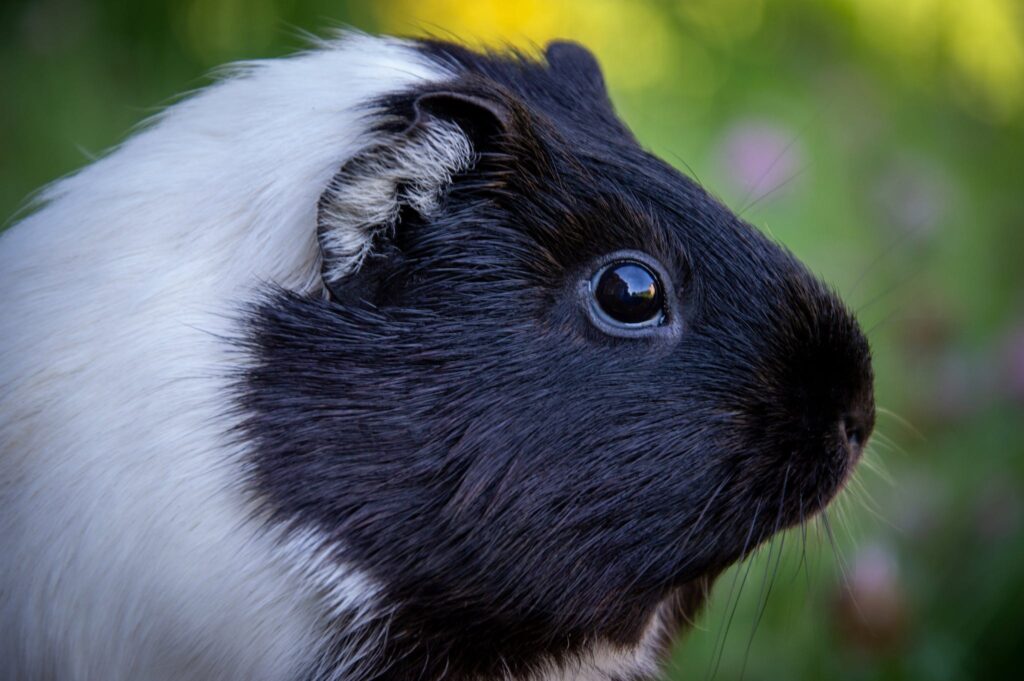
Where to Buy and What to Look For
When it comes to finding the best hay for your guinea pig, it’s important to know where to buy it and what to look for. Here are some tips to help you find the highest quality hay:
Identifying High-Quality Hay Suppliers
Pet stores are a common place to purchase hay for guinea pigs, but not all pet stores offer the best quality hay. Look for stores that specialize in small animals, such as Small Pet Select, which offers a variety of hay options including timothy hay, orchard grass hay, and alfalfa hay. These types of stores typically have a higher standard for the hay they sell and may offer fresher and higher quality options.
Another option is to purchase hay directly from the manufacturer, such as Oxbow, which offers Western Timothy Hay that is known for its high quality. This can ensure that you are getting the freshest hay possible and can cut out the middleman.
Reading Hay Labels and Descriptions
When shopping for hay, it’s important to read the labels and descriptions carefully. Look for hay that is labeled as “second cutting,” as this is typically the best quality and has the highest nutritional value for your guinea pig. First cut hay can be too tough and fibrous, while third cut hay may be too soft and lack the necessary fiber.
Look for hay that is green and fragrant, as this indicates freshness. Avoid hay that is brown or dusty, as this can be a sign of mold or poor quality.
When looking for the best hay for your guinea pig, consider purchasing from a specialized store or directly from the manufacturer, and look for hay labeled as “second cutting” that is green and fragrant. By following these tips, you can ensure that your guinea pig is getting the highest quality hay possible.

Additional Dietary Considerations
When it comes to providing your guinea pig with a healthy diet, it’s important to consider more than just the type of hay you choose. Incorporating fresh vegetables and leafy greens into their diet can provide essential fiber and nutrients that hay alone may not provide.
Incorporating Fresh Vegetables and Leafy Greens
Fresh vegetables and leafy greens should make up a significant portion of your guinea pig’s diet. These can include options such as carrots, bell peppers, kale, and spinach. Be sure to introduce new vegetables slowly and in small quantities to avoid digestive issues.
It’s important to note that not all vegetables and greens are safe for guinea pigs to consume. Avoid feeding them anything from the onion or garlic family, as well as iceberg lettuce, which lacks nutritional value and can cause digestive issues.
Understanding the Need for Vitamin C Supplementation
Guinea pigs, like humans, cannot produce their own vitamin C and require it in their diet. A lack of vitamin C can lead to health issues such as scurvy. While some commercial guinea pig foods may contain vitamin C, it’s important to supplement their diet with fresh sources as well.
In addition to incorporating vitamin C-rich vegetables such as bell peppers and kale, you can also provide your guinea pig with vitamin C supplements specifically formulated for their needs. Be sure to consult with your veterinarian for guidance on the appropriate dosage.
Overall, a healthy diet for your guinea pig should consist of a variety of fresh vegetables, leafy greens, and high-quality hay. By providing them with a balanced diet, you can help ensure their overall health and well-being.
Read next: How to Get Rid of Guinea Pig Urine Smell: Effective Solutions
